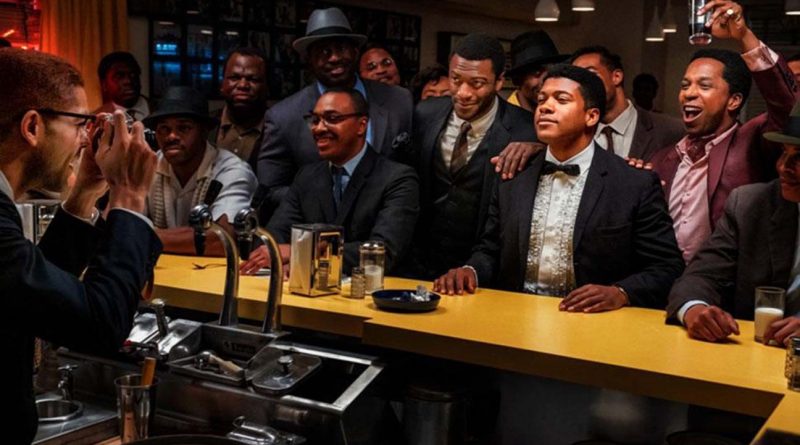‘One Night in Miami’ Review: Restrictions of the Stage Hold Back an Otherwise Good Film
There is a 1982 stage play called “Insignificance”, that was adapted into a movie in 1985. The premise is Marilyn Monroe, Albert Einstein, Joe DiMaggio, and Joseph McCarthy converge on a hotel one fateful night and together reflect on their lives, the nature of fame, and American culture at large. If a fictional evening of various American icons siting in a room philosophizing sounds a bit tedious, that’s because it probably is. Imagine this scenario with black American icons, and you have “One Night in Miami“.
Rather than just look backward, “One Night in Miami” features Malcolm X, Cassuis Clay, Sam Cooke, and Jim Brown gathered at inflection points in their lives, and their discussion that evening of the state of black America and the struggle for real freedom sets them on a new path. Malcolm X is pondering leaving the Nation of Islam and striking out on his own. Cassius Clay has just become heavyweight world champion and is considering signing onto the Nation’s cause and changing his name to Muhammad Ali. Sam Cooke feels unfulfilled by his inability to connect with mainstream audiences, and wants to write more meaningful music. Jim Brown is tired of being the NFL’s bad boy and wants more financial security and freedom.
The four men spend the movie’s runtime ruminating on the state of the world and each decides, after much deliberation, to make a change in their lives, one way or another. The events of the movie touch upon a great many issues facing black Americans both then and now, in a way that mildly interesting at best. It’s something of a cinematic panel discussion and, like most plays, very little really happens but people talk a great deal about things happening. I will commend the film for including some boxing sequences amongst other flashpoints of action to frame the story, which helps shake things up.
Like “Ma Rainey’s Black Bottom“, the movie is based on a play and faces the similar problem of having to overcome an inherently boring structure. Playwright Kemp Powers adapted his own work for the script, and does a good job of keeping the dialogue short, lively, and to the point, while maintaining a sense of realism. The movie cuts down on the monologues and delivers much of its messaging through argumentation instead, which is a little more interesting than seeing a single character deliver a lengthy speech. The performances and dialogue are also spot on in their impressions of real life people, with Eli Goree’s Muhammad Ali standing out as eerily similar to the real man. The performances as a whole are generally more nuanced and toned down compared to what one might see on a stage which helps their believability. Director Regina King, who has a solid career in television but here makes her film debut, also does a good job of making the film feel more cinematic than it might otherwise be, eschewing the long takes and tracking cameras of other stage adaptations in favor of a more composed, editing-centric visual style.
Similar to “Ma Rainey”, “One Night in Miami” has some great acting, good dialogue, and raises interesting ideas. It also does a better job of rising above its origins on the stage by being more emotionally and tonally subtle and by relying more on editing to break up the monotony, but stops short of being truly captivating. Still, there are worse ways to spend 100 minutes.




